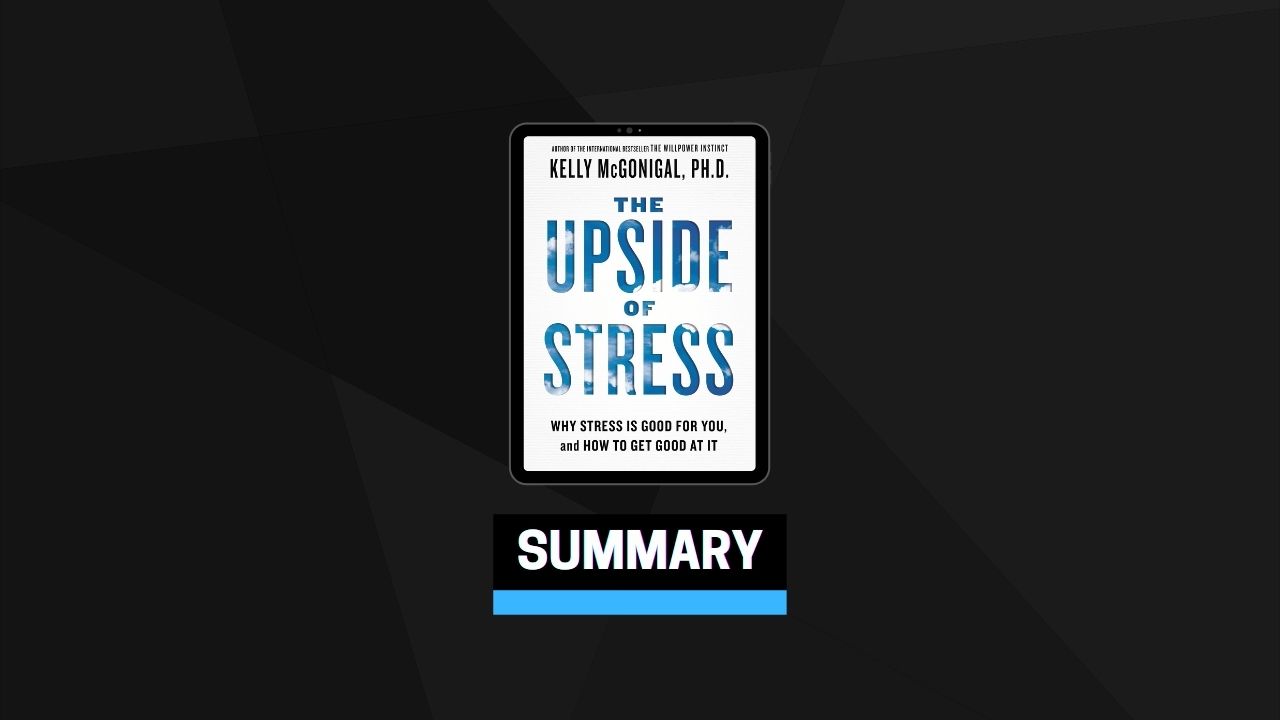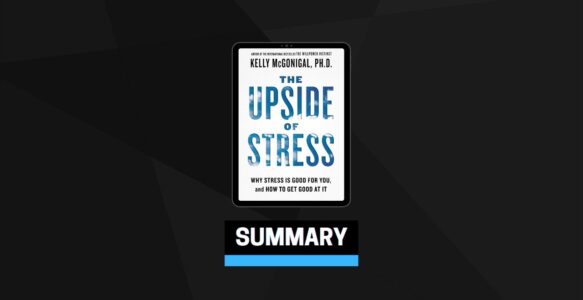Because we use stress to describe so many aspects of life, how you think about it has a profound effect on how you experience life. Changing your thoughts about stress can have a similarly profound effect, transforming both everyday aggravations and how you relate to the biggest life challenges. So, rather than try to offer a narrow and manageable definition of stress.
it would be easier to say, “This book is about thriving under pressure at work” or “This book will help you manage the physical symptoms of anxiety.” But the transformative power of choosing to see the upside of stress comes from its ability to change how you think about, and relate to, so many different aspects of life.
How to Change Your Mind About Stress
The benefits of a mindset shift appear as soon as people begin to see the upside of stress. It’s not clear whether there is some kind of critical threshold or whether a bigger mindset shift always comes with bigger benefits.
The most important takeaway is that seeing the good in stress doesn’t require abandoning the awareness that, in some cases, stress is harmful. The mindset shift that matters is the one that allows you to hold a more balanced view of stress—to fear it less, to trust yourself to handle it, and to use it as a resource for engaging with life.
Beyond Fight-or-Flight
We have stress responses to help us do something about it. We get stressed when our goals are on the line, so we take action. We get stressed when our values are threatened, so we defend them. We get stressed when we need courage. We get stressed so we can connect with others. We get stressed so that we will learn from our mistakes.
The stress response is more than a basic survival instinct. It is built into how humans operate, how we relate to one another, and how we navigate our place in the world. When you understand this, the stress response is no longer something to be feared. It is something to be appreciated, harnessed, and even trusted.
A Meaningful Life Is a Stressful Life
Everyone has an Everest. Whether it’s a climb you chose, or a circumstance you find yourself in, you’re in the middle of an important journey. Can you imagine a climber scaling the wall of ice at Everest’s Lhotse Face and saying, “This is such a hassle”? Or spending the first night in the mountain’s “death zone” and thinking, “I don’t need this stress”? The climber knows the context of his stress. It has personal meaning to him; he has chosen it. You are most liable to feel like a victim of the stress in your life when you forget the context the stress is unfolding in. “Just another cold, dark night on the side of Everest” is a way to remember the paradox of stress. The most meaningful challenges in your life will come with a few dark nights.
The biggest problem with trying to avoid stress is how it changes the way we view our lives, and ourselves. Anything in life that causes stress starts to look like a problem. If you experience stress at work, you think there’s something wrong with your job. If you experience stress in your marriage, you think there’s something wrong with your relationship. If you experience stress as a parent, you think there’s something wrong with your parenting (or your kids). If trying to make a change is stressful, you think there’s something wrong with your goal.
When you think life should be less stressful, feeling stressed can also seem like a sign that you are inadequate: If you were strong enough, smart enough, or good enough, then you wouldn’t be stressed. Stress becomes a sign of personal failure rather than evidence that you are human. This kind of thinking explains, in part, why viewing stress as harmful increases the risk of depression. When you’re in this mindset, you’re more likely to feel overwhelmed and hopeless.
Choosing to see the connection between stress and meaning can free you from the nagging sense that there is something wrong with your life or that you are inadequate to the challenges you face. Even if not every frustrating moment feels full of purpose, stress and meaning are inextricably connected in the larger context of your life. When you take this view, life doesn’t become less stressful, but it can become more meaningful.
What Does It Mean to Be Good at Stress?
Psychologists have gone on to coin many phrases to describe what it is to be good at stress: grit, learned optimism, post-traumatic growth, shift-and-persist, having a growth mindset.
It reminds us that we cannot always control the stress in our lives, but we can choose our relationship to it. It acknowledges that embracing stress is an act of bravery, one that requires choosing meaning over avoiding discomfort.
This is what it means to be good at stress. It’s not about being untouched by adversity or unruffled by difficulties. It’s about allowing stress to awaken in you these core human strengths of courage, connection, and growth. Whether you are looking at resilience in overworked executives or war-torn communities, the same themes emerge. People who are good at stress allow themselves to be changed by the experience of stress. They maintain a basic sense of trust in themselves and a connection to something bigger than themselves. They also find ways to make meaning out of suffering. To be good at stress is not to avoid stress, but to play an active role in how stress transforms you.
Connect: How Caring Creates Resilience
The social nature of stress is not something to fear. When you take a tend-and-befriend approach, even contagious stress can be strengthening.
caring creates resilience, whether the altruism is a response to rescue us from our own suffering or simply a natural reaction to the pain of others. A sympathetic stress response to another person’s suffering can spark empathy and motivate helping, which in turn enhance our own well-being. Furthermore, we shouldn’t be afraid to let others see the truth of our own struggles—especially when we need their support. In many ways, our transparency is a gift, allowing others to feel less alone and offering them the opportunity to experience the benefits of tending and befriending.
Grow: How Adversity Makes You Stronger
Would you go back and remove all the painful experiences in your life?
How you answer that question matters. People who agree with statements like these are less satisfied with their current lives, more anxious about the future, and more likely to become depressed. These outcomes don’t seem to be the direct result of a person’s painful experiences, but rather the result of their attitude toward them. Importantly, it is possible to learn to think about your struggles in a different way. Studies show that when people adopt a more accepting attitude toward their past hardships, they become happier, less depressed, and more resilient.
Choosing to see the upside in our most painful experiences is part of how we can change our relationships with stress. Accepting past adversity is part of how we find the courage to grow from our present struggles. In many ways, it is the attitude that allows us to embrace and transform stress.
the evidence for this point of view is already all around you. If you look, you will see the signs of it in your own life, in the lives of those you admire, and even in the stories of strangers.


